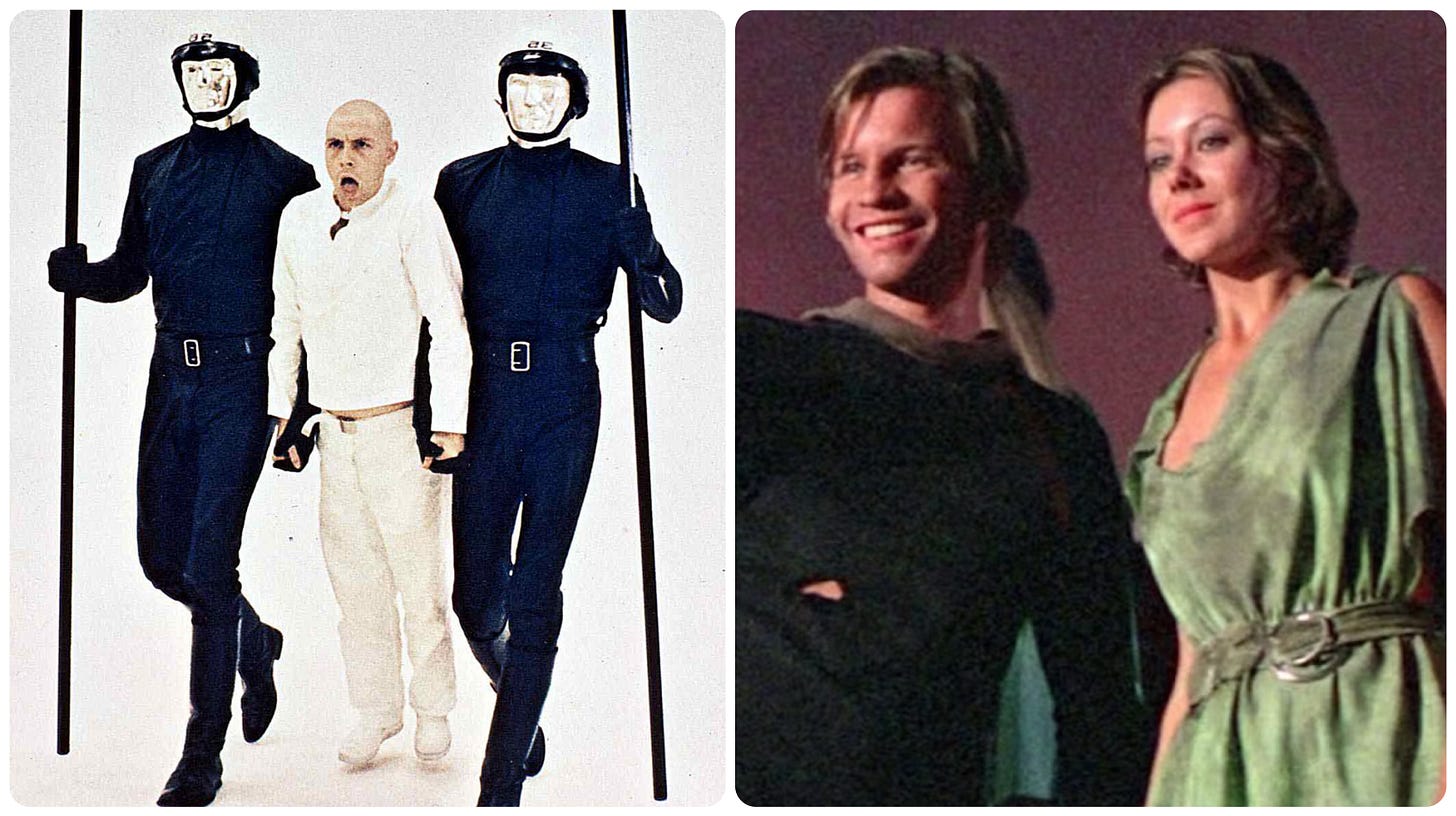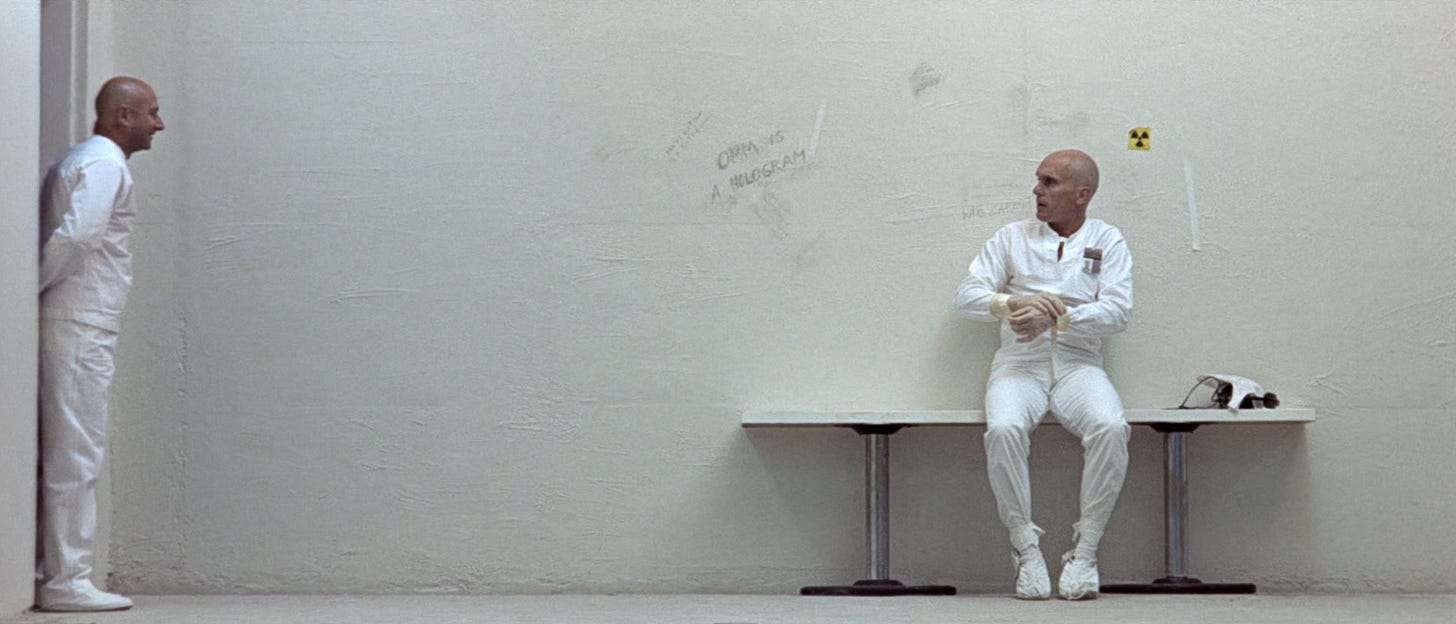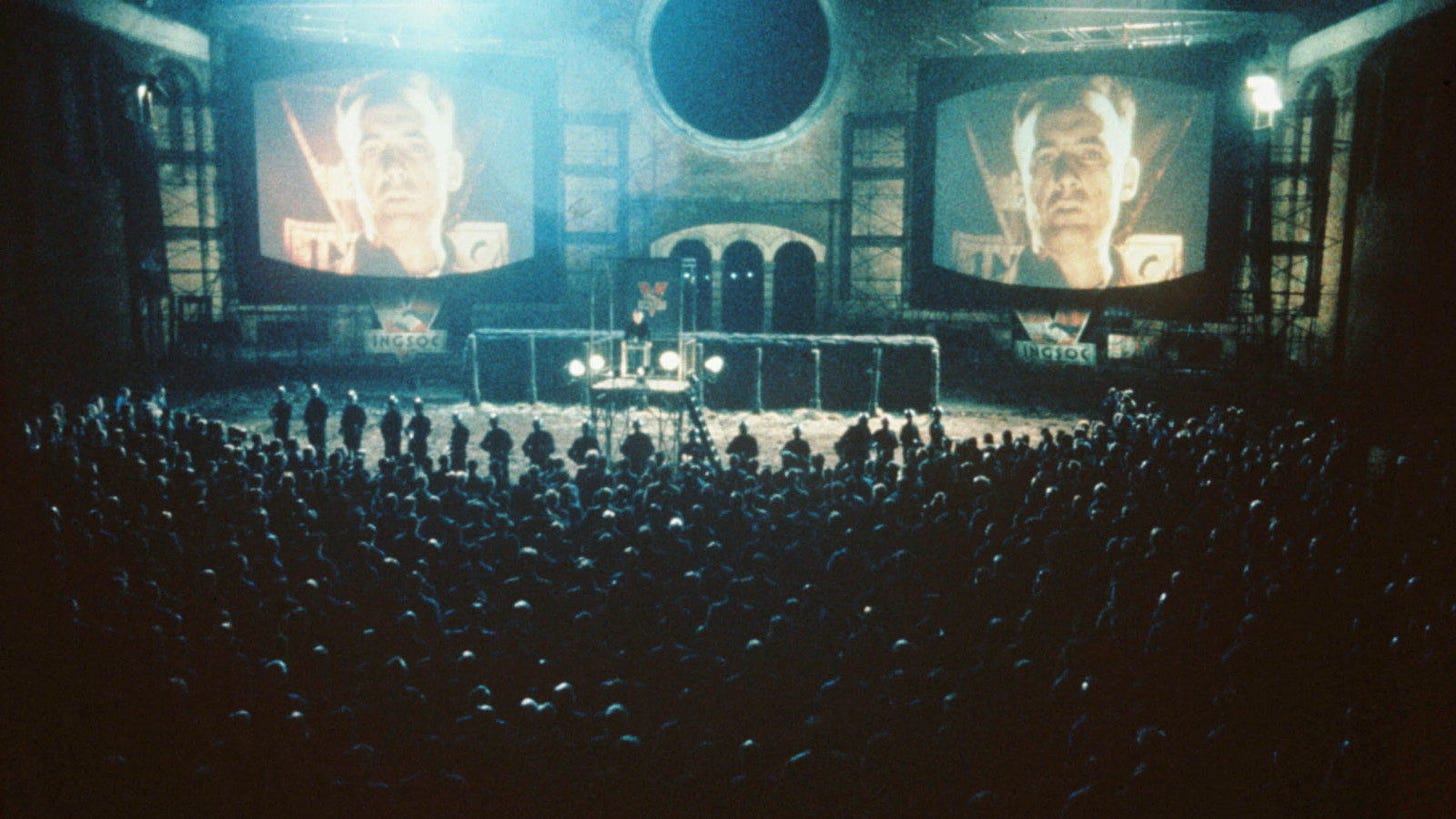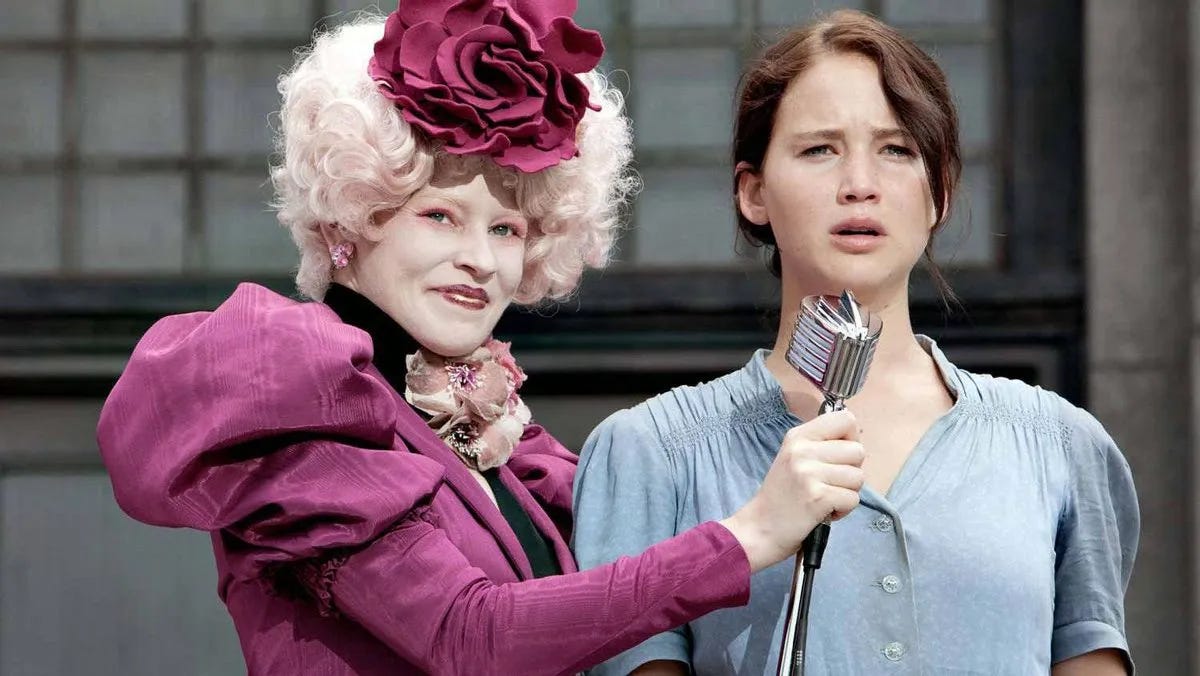Worst to Best: Authoritarian Dystopias Ranked by Quality of Life
Nobody wants to live in an oppressive totalitarian state. Yet the movies have taught us that some are preferable to others, at least for a little while.

Films that depict dystopias tend to focus on heroes and their sometimes futile, sometimes triumphant struggles against oppressive systems. But what about the ordinary folk just trying to make it through the day who don’t care about, say, hiring inequalities in the Gattaca Aerospace Corporation? Or which tribute wins the Hunger Games? Or feel pretty confident they could survive the annual Purge Night? If there’s a running theme to cinematic dystopias, most of them anyway, it’s that it’s all a matter of perspective. If you have the resources and influence, almost any authoritarian regime can be bearable. If not, well, good luck carving out a safe space for yourself in the ruins of Manhattan.
As we head into 2025, it seems like a good time to take stock of what the movies have taught us about living in authoritarian dystopias and which might be the least miserable to call home. A few ground rules: this list concerns functional (if awful) dystopias, not post-apocalyptic hellscapes, even if they have some form of order. That means films like The Matrix and the Mad Max series don’t factor in. (Yes, the first Mad Max is more or less set in a dystopia, but let’s not split irradiated hairs.) Furthermore, the rankings take into account overall livability for everyone. Inequality defines almost every dystopia and the volume of residents living hopeless lives found in each is the primary defining factor. As Ursula K. Le Guin’s “Those Who Walk Away from Omelas” illustrates, the misery of even one person can’t be erased by the benefits it creates for others. But numbers do play a role in this ranking. (Sorry, Ursula K. Le Guin.) We’ll start with the absolute worst on the bottom and work our way up to the maybe-not-that-bad-if-you’re-lucky-and-you-don’t-think-that-hard societies on the top.
16. THX 1138 (1971)
For universal misery, it’s tough to beat the world of THX 1138. George Lucas’ feature debut takes place in a violent regime that’s outlawed sex and love while reducing humans to automatons placated by religious ritual, holographic entertainment, and consciousness-deadening drugs. No one seems to be having a good time, as if even those who once benefitted from the system had been absorbed by it and humanity had forgotten any other way to live. The hints offered about what led to this situation suggest something really bad must have happened. But the methods employed to survive seem even worse.
15. 1984 (1984)
George Orwell’s Nineteen Eighty-Four is the urtext that’s influenced just about every dystopia that’s followed its 1949 publication, in part because Orwell took the elements of the authoritarianism present in the world around him and took them to their logical conclusion. The result: a world of constant surveillance, material deprivation, ever-present suspicion, non-existent freedom, disinformation, and brutal punishment. Michael Radford’s adaptation brings it to the screen with washed-out visuals to match its sense of despair. There’s at least a hint that members of the Inner Party, like Richard Burton’s O’Brien, enjoy advantages that those beneath them don’t, but any existence placed atop this humanity-destroying trash heap civilization can only be so good.
14. V for Vendetta (2005)
The influence of Orwell’s dystopia, as filtered through Thathcherism, is all over V for Vendetta, the 1980s comic series written by Alan Moore and drawn by David Lloyd. Set in the wake of a nuclear war that’s led to a fascist takeover of the British government, it depicts a country in thrall to a seemingly all-seeing, all-knowing oppressive system that’s attempted to purge the population of immigrants, LGBTQ+ citizens, and other undesirables. (A major European country allowing the rise of a destructive far-right movement that eventually takes over control of the government? Science fiction is wild.) Produced by the Wachowskis and directed by James McTeigue, the movie version largely stays true to the source material until departing from it wildly in a far sunnier final act. Both book and film hold open the possibility of a better tomorrow, but basically everything looks better than the existing system.
13. The Hunger Games series (2012 - )
Why would Panem be preferable to Britain under the Norsefire government? It’s a matter of numbers. At the very least, the residents of the Capitol seem to be having a pretty good time, so maybe you’d be lucky enough to be one of the more privileged inhabitants of the Suzanne Collins-created dystopia. Failing that, there’s a chance you might end up in one of the more fortunate districts or, at the very least, be able to put together a decent enough life in one of the country’s least prosperous regions. Sure, the Hunger Games themselves are incredibly grim, but only a few end up participating in them and not everybody dies. And, yeah, the odds are good you’d lose a friend or even a child to the annual ritual… OK, yeah, this isn’t one of the better dystopias. It just looks preferable to some of the others.
Keep reading with a 7-day free trial
Subscribe to The Reveal to keep reading this post and get 7 days of free access to the full post archives.






